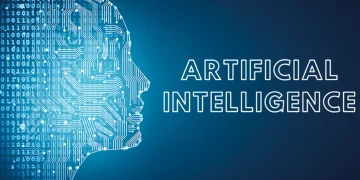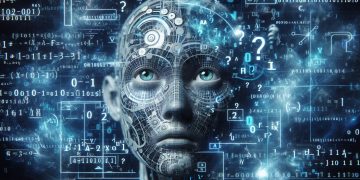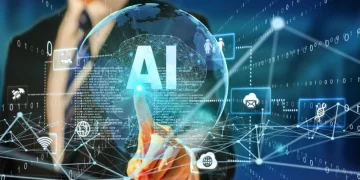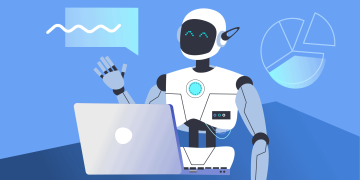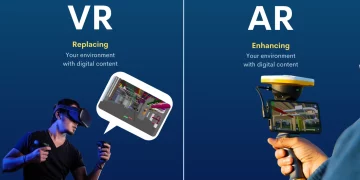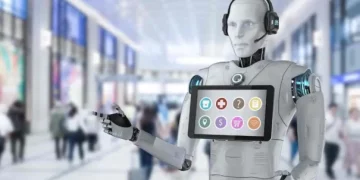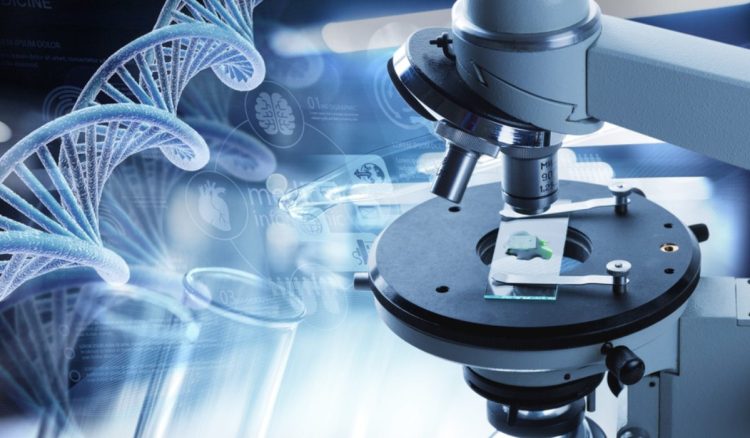Introduction: The New Frontier in Medicine
Biotechnology is rapidly transforming the healthcare landscape, offering innovative treatments and groundbreaking advancements that were previously the stuff of science fiction. From genetic therapies to personalized medicines, biotechnology is shaping a new era of healthcare that promises not only to improve the efficacy of treatments but also to make healthcare more accessible and tailored to individual needs. Through advancements in genomics, cell biology, and biotechnology engineering, we are on the verge of an era where diseases that were once considered untreatable are becoming curable, and medical treatments are increasingly personalized to each individual’s unique genetic makeup.
This article explores how biotechnology is revolutionizing healthcare by focusing on the most exciting developments: gene editing, personalized medicine, stem cell therapy, and vaccines. By delving into how these technologies work, their potential applications, and the challenges they face, we will better understand how biotechnology is reshaping medical practices around the globe.
1. Gene Editing: CRISPR and Beyond
1.1 How CRISPR Works
One of the most revolutionary breakthroughs in biotechnology is gene editing, particularly the CRISPR-Cas9 technology. CRISPR (Clustered Regularly Interspaced Short Palindromic Repeats) is a naturally occurring defense mechanism in bacteria that allows them to fight off viral infections by cutting and storing segments of viral DNA. Scientists have harnessed this ability to create a powerful tool for precise gene editing in living organisms.
By using the Cas9 enzyme, which acts like molecular scissors, CRISPR can cut DNA at specific locations, allowing scientists to insert, delete, or replace genes with high precision. This technology has unlocked new possibilities for treating genetic disorders, including diseases like cystic fibrosis, sickle cell anemia, and muscular dystrophy.
The precision of CRISPR-Cas9 allows for the editing of individual genes at specific locations within the genome, reducing off-target effects and making the process significantly more efficient and cost-effective than previous techniques.
1.2 Applications in Healthcare
The applications of CRISPR in healthcare are vast. Perhaps the most promising use of CRISPR technology is in gene therapy, which aims to correct genetic mutations that cause diseases. Diseases that were once considered incurable, such as cystic fibrosis, are now within reach of gene therapy treatments.
1.2.1 Gene Editing for Genetic Disorders
By correcting defective genes at the DNA level, CRISPR has the potential to eliminate the root cause of hereditary diseases. This could mean a cure for conditions like Huntington’s disease, muscular dystrophy, and even some types of cancer.
For instance, in sickle cell anemia, a single gene mutation causes red blood cells to form abnormally. Researchers are using CRISPR to edit this defective gene in patients’ stem cells, allowing for the production of healthy red blood cells. Early clinical trials have shown promising results, and researchers are optimistic that this technique could lead to permanent cures for genetic blood disorders.
1.2.2 CRISPR in Cancer Treatment
Another major application of CRISPR in healthcare is cancer treatment. CRISPR can be used to edit immune cells, such as T-cells, to better target and destroy cancer cells. This approach is being explored in CAR-T cell therapies, where patients’ immune cells are edited to better recognize and attack cancer cells.
Researchers are also exploring ways to use CRISPR to target specific genes that drive cancer growth, such as the oncogenes responsible for tumor formation. By selectively silencing these genes, CRISPR may offer a way to halt cancer progression without affecting healthy tissue.
2. Personalized Medicine: Tailoring Treatments to Individual Genomes
2.1 The Role of Genomics in Precision Medicine
Personalized medicine, also known as precision medicine, is a medical model that uses an individual’s genetic information to tailor treatment plans. The concept is rooted in the idea that each patient’s genetic makeup is unique and that medical treatments should reflect this individuality.
Genomic technologies, such as genome sequencing and genetic profiling, allow doctors to map a patient’s DNA and predict their risk for developing certain diseases. This information enables clinicians to create highly personalized treatment plans that are more effective and less likely to cause adverse side effects.
2.1.1 Genetic Risk Profiling
Using an individual’s genetic profile, doctors can identify potential risks for diseases like heart disease, diabetes, and cancer. For example, some patients may have a genetic variant that increases their risk of breast cancer. By detecting these mutations early, healthcare providers can develop preventive strategies, such as more frequent screenings, lifestyle changes, or even prophylactic treatments.
2.1.2 Tailored Drug Development
Pharmaceutical companies are using genomic data to design drugs that are more effective and specific to particular genetic variations. In oncology, for example, the development of targeted therapies that work by blocking specific mutations has transformed the treatment of cancers like lung cancer and breast cancer.
One notable example is Herceptin, a drug used to treat breast cancer patients who have high levels of a protein called HER2. Patients with this mutation respond much better to Herceptin than to traditional chemotherapy.
2.2 Example: Pharmacogenomics
Pharmacogenomics is the study of how genes influence a person’s response to drugs. By understanding the genetic variations that affect drug metabolism, doctors can optimize drug prescriptions, ensuring that the right drug is given at the right dose. This approach helps minimize adverse drug reactions and improves the efficacy of treatments.
2.2.1 Optimizing Treatment with Genetic Information
For example, some individuals may metabolize certain medications too quickly, rendering the drug less effective. Conversely, others may metabolize the drug too slowly, leading to toxic side effects. Pharmacogenomics allows doctors to personalize treatment plans to match the patient’s genetic profile, improving both safety and effectiveness.
2.2.2 Preventing Adverse Drug Reactions
Pharmacogenomics can also help prevent adverse drug reactions (ADRs), which are a leading cause of hospitalization and death. For example, genetic variations can influence a person’s response to drugs like warfarin, an anticoagulant. By conducting genetic tests before prescribing the drug, doctors can adjust the dosage to reduce the risk of bleeding or other complications.

3. Stem Cell Therapy and Regenerative Medicine
3.1 Stem Cells in Treating Degenerative Diseases
Stem cell therapy represents one of the most exciting developments in regenerative medicine. Stem cells have the remarkable ability to differentiate into different types of cells, including muscle, nerve, and heart cells. This ability makes them ideal candidates for treating degenerative diseases and injuries.
Stem cell therapy is being explored for the treatment of Parkinson’s disease, spinal cord injuries, and heart disease. For instance, stem cells can be used to replace damaged neurons in the brains of Parkinson’s patients or regenerate damaged heart tissue after a heart attack.
3.1.1 Parkinson’s Disease
In Parkinson’s disease, neurons that produce dopamine are progressively lost. Scientists are researching ways to use stem cells to grow new dopamine-producing neurons and implant them into patients’ brains, potentially restoring motor function and alleviating symptoms.
3.1.2 Spinal Cord Injuries
Spinal cord injuries often result in permanent paralysis. However, researchers are investigating ways to use stem cells to repair the spinal cord and restore motor function. While clinical trials are still ongoing, early studies have shown promising results in regrowing nerve tissue and improving movement in animals.
3.2 Challenges and Ethical Concerns
While stem cell therapy offers significant promise, it also raises ethical and technical challenges. One of the major ethical debates centers around the use of embryonic stem cells, which are derived from early-stage embryos. Some people believe that this practice is morally wrong because it involves the destruction of embryos.
3.2.1 Ethical Alternatives
To address these concerns, scientists have developed adult stem cells and induced pluripotent stem cells (iPSCs). iPSCs are adult cells that have been reprogrammed to behave like embryonic stem cells. These cells offer a more ethical alternative because they do not require the destruction of embryos.
4. Biotechnology in Vaccine Development: Responding to Global Health Crises
4.1 mRNA Vaccines: A New Era
The COVID-19 pandemic brought biotechnology to the forefront of global healthcare. mRNA vaccines — such as the Pfizer-BioNTech and Moderna vaccines — have revolutionized how we think about vaccine development. Unlike traditional vaccines, which use inactivated virus or viral proteins to stimulate an immune response, mRNA vaccines use messenger RNA (mRNA) to instruct cells to produce a protein found on the surface of the virus, which then triggers an immune response.
4.1.1 Advantages of mRNA Vaccines
mRNA vaccines offer several advantages over traditional vaccines. They can be developed quickly, allowing for faster responses to new pathogens. Additionally, mRNA vaccines are easily adaptable, making it easier to modify them in the event of new variants or future pandemics.
4.2 Future Potential of mRNA Technology
The success of mRNA vaccines in the fight against COVID-19 has opened the door for using this technology to treat a wide range of diseases. In addition to infectious diseases, mRNA technology has shown promise in cancer immunotherapy, autoimmune disorders, and even genetic diseases, where mRNA could be used to deliver corrective genes directly to cells.
Conclusion: A New Era of Healthcare
Biotechnology is driving a revolution in healthcare. From gene editing to personalized medicine and regenerative therapies, biotechnology offers powerful new tools to treat diseases and improve quality of life. However, as these technologies continue to evolve, we must carefully navigate the ethical and regulatory challenges they present. With responsible development and thoughtful regulation, biotechnology has the potential to transform healthcare, offering more effective, personalized, and equitable treatments for all.


